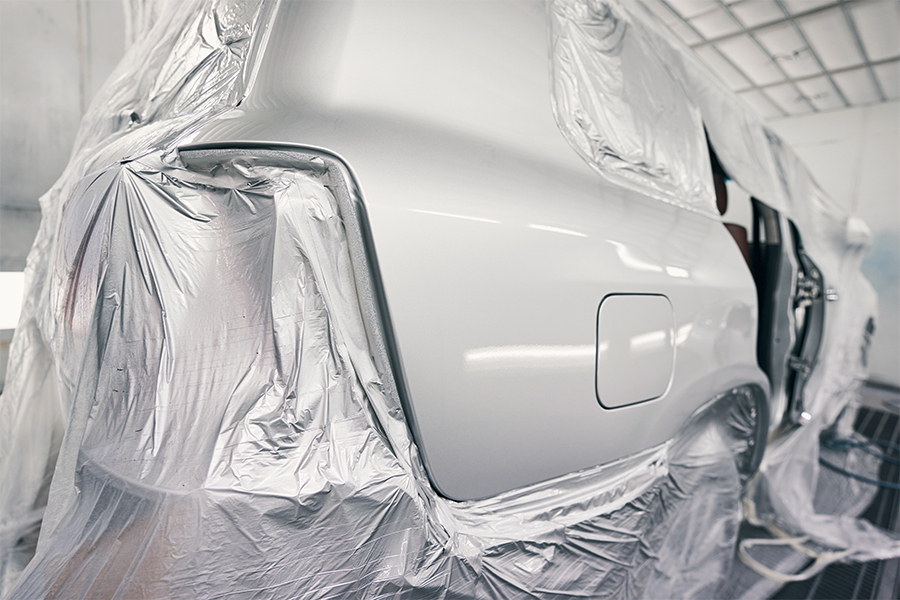Removing NMP from air emissions in the automotive sector
It’s vital that companies put stringent measures in place to protect the health of their site workers from the effects of restricted chemicals in its plant’s air emissions. By adsorbing components such as N-Methyl-Pyrrolidone (NMP), DESOTEC’s sustainable mobile filters ensure workforce safety.
The problem
A Polish company produces compressors for air cooling systems used in cars manufacturing. To reduce friction, the pistons inside the compressors are covered with a coating.
One of the main components of this coating is N-Methyl-Pyrrolidone (NMP), which is a volatile organic compound (VOC), and its exposure is strictly controlled to minimise occupational health risks.
To comply with legislation and protect its workers, the company needed to bring the amount of NMP in its air emissions from 60 mg/m³ down to below 10 mg/m³.
The compressor manufacturer also wanted to reduce the level of methylpentanol, another VOC used in their coating and found in its air emissions.


The solution
We installed a pilot filter at the customer’s site. Tests proved successful, so the client gave us the go-ahead to install two Aircon V-XL filters in series for treating a contaminated airflow of 40,000 m³/h.
Due to operational conditions and the high concentration of pollutants, there was a higher risk of developing hotspots in the filter bed. These generate heat and cause parts of the carbon bed to smoulder.
DESOTEC has developed a safety measure to counteract this risk, called Inertibox, which detects hotspots by measuring CO levels and extinguishes them with a nitrogen (i.e., inert gas) flush. To be on the safe side, we incorporated this device in our setup.
The results
All components in the emissions have now been reduced to safe levels, and the client is happy with DESOTEC’s purification solution.
Pilot testing allows customers to see the effectiveness of our filtration solutions and helps DESOTEC determine their optimal set-up. In more urgent situations, we can quickly install our filters and then tweak the system to improve its efficiency once it is up and running.
The Inertibox was developed by DESOTEC’s R&D team and is now used by many clients. It is extremely useful where production is discontinuous and concentrations of components are high, as these conditions may, in rare cases, lead to the development of hotspots. In any case, our filters are closed, so in the unlikely event that hotspots do occur, they will not spread outside the unit.
Filtration waste is not handled at customers’ sites. Instead, once the carbon is saturated, DESOTEC exchanges filters through a quick and simple process and brings the spent carbon back to its facilities. There, we have the equipment and expertise to handle the exhausted carbon safely and sustainably.
All molecules that were adsorbed onto the carbon are destroyed in our furnaces, which are continuously monitored to ensure that only water vapour exits the chimneys. We reactivate carbon whenever possible, as was the case for this Polish company. This circular business model drives down costs and boosts sustainability.
How can DESOTEC help you?
To discuss your company’s purification needs with our experts, get in touch today.
Contact our expertsHow can DESOTEC help you?
To discuss your company’s purification needs with our experts, get in touch today.
Contact our experts-
Air and Gas Purification
Our sustainable filtration solutions ensure air purification, odor control, and high quality process gases such as biogas and biomethane. -
Our unique service
Our closed-loop, full-service model is as unique as your business needs. We’ll define the right filtration setup and safely recycle filtration waste, making it easy to go green. -
Your Sustainability Journey
Like you, we care about protecting our air, water, and soil for future generations. Our filtration solutions help you meet environmental standards, reducing your carbon footprint.


